 Cultivating truth, goodness, and beauty grounded in the Christian worldview
Cultivating truth, goodness, and beauty grounded in the Christian worldview Cultivating truth, goodness, and beauty grounded in the Christian worldview
Cultivating truth, goodness, and beauty grounded in the Christian worldview
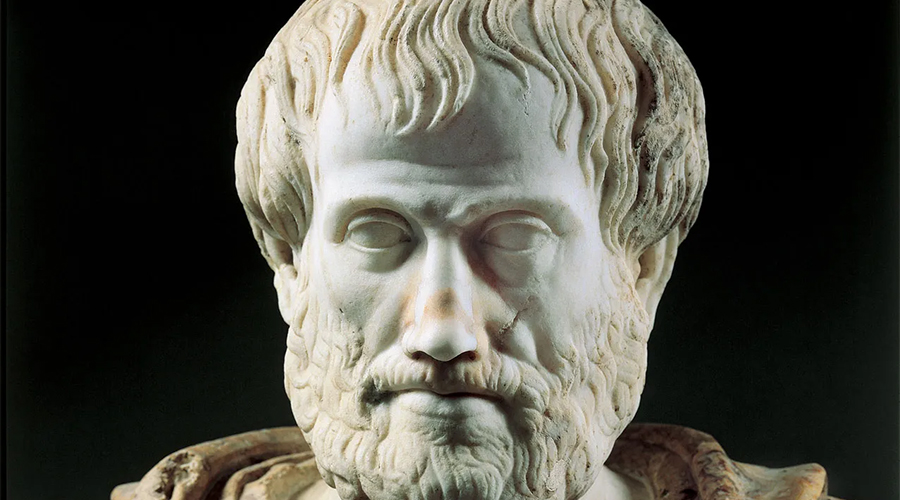
At last week's Principal's Coffee, we had a great discussion about how to encourage our children to make and maintain strong friendships. We were inspired in part by Aristotle's discussion of friendship in Book VIII of the Nicomachean Ethics . For Aristotle, "friendship is a virtue, or involves virtue; and also it is one of the most indispensable requirements of life. For no one would choose to live without friends, but possessing all other good things." We particularly desire our children to have those friendships that, to use Aristotle's categories, are not simply useful or pleasant but actually help stimulate virtue in one another.
Likewise, in his book The Four Loves , C.S. Lewis tells us that friendship "arises out of mere companionship when two or more companions discover they see or care about the same truth which others do not share." When this shared truth is the Truth of the Gospel, the possibilities for spiritual formation, for "iron sharpening iron" (Prov 27:17), are enormous. These kinds of rich friendships are what we all long for our children to enjoy.
What then can we do? As parents we need to model good friendships for our children, showing them the habits of speech, intentionality, vulnerability, and service that build trust and affection between people. Let them help you make and deliver a meal to a friend who is sick. Talk to them about how your friends have helped you become more like Christ. Counsel them through their own relational challenges as they learn to be good friends to others. May our children come to enjoy many virtuous, Christ-centered friendships!

Is there value in a child doing a math problem incorrectly? It is understandable that students might consider any work devoted to finding a wrong answer a waste of time and effort. I cringe to think about the number of math tests my former students have crumpled up and thrown into a wastebasket in frustration. However, a classical liberal arts perspective makes the argument that there are real and meaningful benefits in the genuine but erroneous efforts of our children.
In a compelling letter called Reflections on the Right Use of School Studies with a View to the Love of God , Simone Weil said, "So it comes about that, paradoxical as it may seem, a Latin prose or a geometry problem, even though they are done wrong, may be of great service one day, provided we devote the right kind of effort to them." Weil believes that success in a child’s academic efforts are realized not only when they do something correctly but rather when it has helped develop their "faculty of attention." She argues that all efforts of attention directed towards the goal of grasping truth will ultimately bring “more light into the soul." By no means should we dismiss the pursuit of a correct result in the work of our children but, "if at the end of an hour we are no nearer to doing so than at the beginning we have nevertheless been making progress each minute of that hour in another more mysterious dimension."
When pursuing a treatment for syphilis in the early 1900's, scientist Paul Ehrlich methodically tested more than 900 compounds before finding one successful result. Ehrlich summarized his efforts to find a treatment for syphilis saying it was "seven years of misfortune with one success." The famous inventor Thomas Edison joked that, "I have not failed. I've just found 10,000 ways that won't work." Ehrlich and Edison had learned the power of perseverance.
When we see our children struggling with an assignment, a chore, or a task we need to remind them that this particular obstacle is helping develop their capacity for attention and the virtue of perseverance. Weil adds, "Even if our efforts of attention seem for years to be producing no result, one day a light which is in exact proportion to them will flood the soul. Every effort adds a little gold to a treasure which no power on earth can take away."
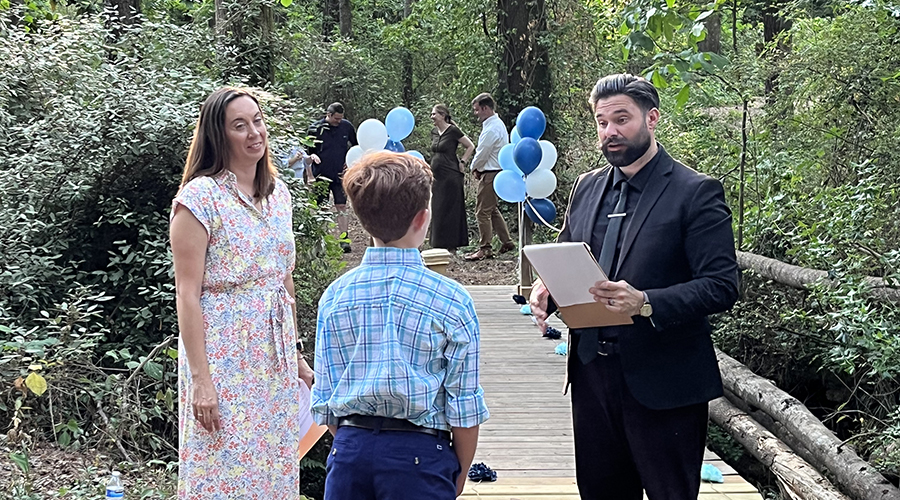
I still remember attending a number of Bar and Bat Mitzvahs as a young teenager. For a boy that knew very little about Jewish culture, the experience was fascinating. The first part was a long, monotonous religious ceremony The second part was a lavish party often hosted at an elegant hotel or swanky country club. The mitzvah party planners spared no expense to create a vibrant celebration with live music, dancing, and a plethora of food. The Jewish culture has established one of the more impressive rites of passage for their young people. A truly unforgettable experience for their child that is grounded in their faith.
Pastor Jon Tyson argues persuasively for the importance and value of Christian rites of passage in his book The Intentional Father . When his son turned thirteen years old, he organized an initiation ceremony on a Long Island beach that ended with his son running into the ocean. This plunge started a program where Tyson rigorously trained his son how to be a faithful Christian man. Six years later, Tyson and his son traveled to Spain to hike the 500-mile Camino de Santiago that signified the culminating event to the six-year discipleship program. At the end of the hike, Tyson arranged a blessing ceremony where his son rushed back into the Atlantic Ocean and into his life of independence. In their book The Power of Moments , Chip and Dan Heath discuss the impact of extraordinary experiences, "It's going to be way harder than you think to create peaks. But once you've done it, you're going to consider every ounce of effort with it."
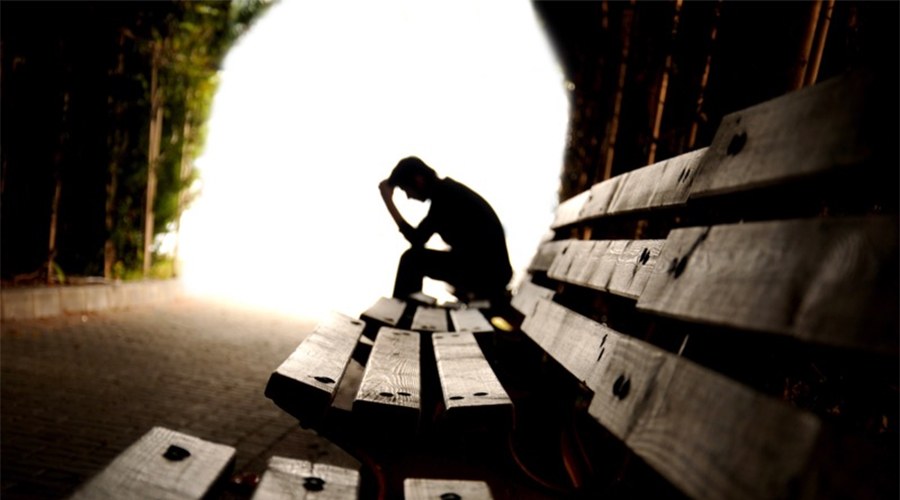
Paul Miller, in his books, A Praying Life and The J-Curve , writes about his daughter, Emily. He tells the story of her and her friend being unjustly benched from the field hockey team and replaced by the coach's own daughters. Paul Miller ran into another team parent at a school function, and she was empathizing with him about the injustice done to Emily and her friend. Paul didn't deny the injustice of the benching, but his response was surprising to the other parent. He said, "I'm not happy about it, but I'm actually thankful that Emily has this 'low-level' suffering on my watch because life is more like 'bench-sitting' than it is like starting in a game." The parent was stunned by his response.
As parents, it is painful to watch our children suffer. Whether it be from an injustice endured or an unkind friend, our tendency is to shield or "fix" the causes of their suffering. But adopting Paul Miller's gospel-centered perspective can help us identify the good that God can bring from difficult circumstances. In Paul Miller's book, The J-Curve , he challenges readers to look for the pattern of Christ's death and resurrection in their own lives. God allows suffering to show us our weakness, and we when we embrace our weakness (die to our will), and receive his strength, we are changed (resurrected) more into Christ-like character - all through the power of the Holy Spirit. This is one way that we are unified with Christ: "we suffer with him in order that we may also be glorified with him (Romans 8:17)."
There is no better training than suffering. It both reveals and refines faith. In the story of Lazarus, after Jesus heard of Lazarus' illness, He delayed going to Mary and Martha. Jesus allowed Martha and Mary to suffer so that their faith might be tested and proved genuine. In their suffering they questioned Jesus' actions: "Lord, If you had been here, my brother would not have died." Wrapped up in this statement were unspoken doubts: "Why did He delay? Why did He not come sooner? Does He not care? If He were good, He would have come. Is He really good?"
Mary and Martha were in the middle of a story - a magnificent gospel story. Gospel stories involve great sacrifice and suffering but end in redemption and life! Even though gospel stories always have happy endings, the happy ending is difficult to see when you're stuck in the middle of the story.
Mary and Martha's experience with Jesus' delay was similar to our present stories of suffering. Why doesn't God answer our prayers for healing, provision or relief? Why does He seem to not come to our aid? We might wonder - just like Mary and Martha - "Does He not care? Is He really good?"
Being in the middle of a gospel story is like walking through a seemingly endless desert. Often, Jesus feels distant or elusive while stuck in the middle of a story. Paul Miller says in his book, A Praying Life , that Jesus' "ambiguous interaction" is intentional: "If the miracle comes too quickly, there is no room for discovery, for relationship. With both [these women] and us, Jesus is engaged in a divine romance, wooing us to himself." He goes on to say... "God permitted a difficult situation in their lives, and then lingered at the edge. Not in the center, at the edge. If he were at the center, they would not have developed the faith to have a real relationship with him. God would have been a magic [wish] machine, not a friend and a lover."
Jesus distances himself to give us space to grow in faith. Suffering is the chrysalis of our personal gospel story! "Gospel stories always have suffering in them. American Christianity has an allergic reaction to this part of the gospel. We'd love to hear about God's love for us, but suffering doesn't mesh with our right to 'the pursuit of happiness.' So we pray to escape a gospel story, when that is the best gift the Father can give us."
Are you in the middle of a gospel story? Is the glorious end of the story darkened by clouds of grief or suffering? Don't lose heart! God is strengthening your faith as he weaves your story together with His own. You are partaking in the sufferings of Christ! And one day, the end will come and you will experience the glorious "happy ending."

If your family is anything like mine, the songs your children sing at Stonehaven have likely become the soundtracks to your lives. One of the newer additions to the Lower School students' repertoire is one that sounds haunting, even ethereal: the Kyrie Eleison . Meanwhile, 10th-grade Church History students in the Upper School have learned a more complex setting of the Kyrie in Gregorian Chant, drawn from the Missa Orbis Factor in the early medieval Kyriale . They did a great job singing it for the whole school in a recent chapel!
Why do we have our students learn such an ancient song? Kyrie Eleison is Greek for "Lord have mercy." It is a phrase that is found throughout Scripture (e.g., Matt 9:27, 15:22, 20:30) and quickly passed into Christian liturgical use. The antiquity of the phrase in early Christian worship was such that the Latin liturgies of the Western church kept this Greek expression untranslated. When we cry out Kyrie Eleison we are, with Christians across all times and places, reminding ourselves of the fundamentals of our faith and the glories of the Gospel. When we call out Kyrie Eleison , we remind ourselves of the intolerable burden of our sinfulness and our desperate need for God's grace and mercy. And when we pray Kyrie Eleison , we remind ourselves that God is not an indifferent and capricious Master, but one who did not spare His own Son that He might lavishly pour out His grace and mercy upon us! As we look ahead to the Lenten season, may this be the cry of your heart too: Kyrie Eleison !
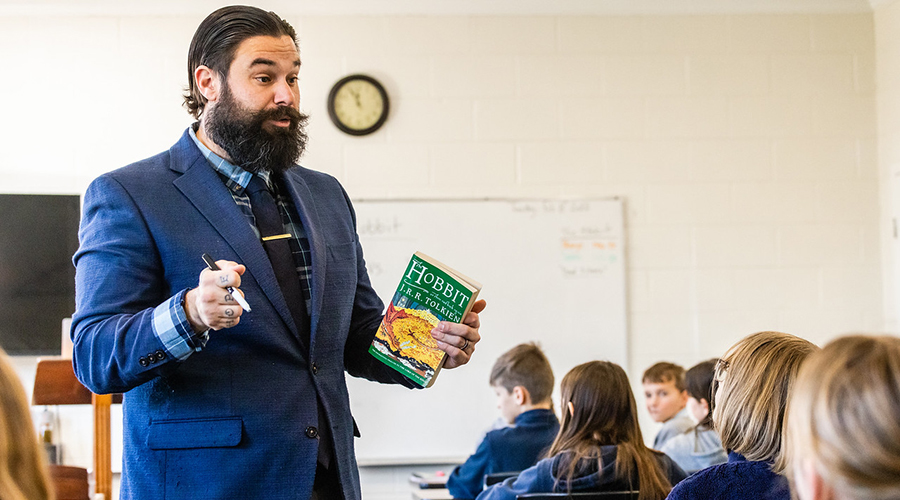
One of the more difficult and yet also one of the more important jobs of an effective teacher is to, "tell him nothing that he can learn himself." Wait, is it not the job of the teacher to tell and teach students that which they do not know? In his book The Seven Laws of Teaching , author John Milton Gregory articulates the role teachers have in creating an environment where learning occurs, "The true function of the teacher is to create the most favorable conditions for self-learning. . . True teaching is not that which gives knowledge, but that which stimulates pupils to gain it. One might say that he teaches best who teaches least." Teaching then is more like a conductor of an orchestra who is stimulating and guiding their students to play the music of learning themselves.
Unfortunately, it is not rare to find teachers that assume their job is to "give knowledge" to their students. They are prone to see the student as an empty receptacle waiting for the treasure trove of knowledge that can be crammed into their pupil's head through their eloquent and verbose lectures. The classical Christian teacher seeks to educate their students in a more powerful way. Charlotte Mason reinforces the ideas of Gregory saying, "The teacher's business is to indicate, stimulate, direct and constrain to the acquirement of knowledge, but by no means to be the fountain-head and source of all knowledge in his or her own person... The teachers give sympathy and occasionally elucidate, sum up or enlarge, but the actual work is done by the scholars."

In Plato's book Phaedrus , we find an enlightening parable that demonstrates the formative power of technology. The Egyptian god Theuth lauds the art of writing saying it will, "make the people of Egypt wiser and improve their memories… a recipe for memory and wisdom." The king of Egypt Thamus argues to the contrary saying that writing, "will implant forgetfulness in their souls: they will cease to exercise memory because they rely on that which is written… it is no true wisdom that you offer your disciples, but only its semblance… the conceit of wisdom."
As parents consider how they allow their children to interact with technologies like computers, cell phones, and social media, it is important to think not only about the content accessed but also how the medium of the content will form their minds and souls. In his book The Shallows , author Nicholas Carr proposes that, "in the long run a medium's content matters less than the medium itself in influencing how we think and act… And what the Net seems to be doing is chipping away my capacity for concentration and contemplation." When we ourselves or our children struggle to concentrate on a challenging task, the liberally educated individual is willing to consider how the media we are using, embedded with its endless distractions, is influencing our brain. Carr laments his personal transition from being a, "a scuba diver in a sea of words, Now I zip along the surface like a guy on a Jet Ski."
In the foreword to his book Amusing Ourselves to Death , Neil Postman proposes that we are more closely realizing the dystopian vision from Aldous Huxley's book A Brave New World . Contrary to the vision of Orwell's 1984 where we are "overwhelmed by an externally imposed oppression," the future we now inhabit is one where, "no Big Brother is required to deprive people of their autonomy, maturity, and history. As he saw it, people will come to love their oppression, to adore the technologies that undo their capacities to think."
Postman and Carr both hearken back to an idea coined by Marshall Mcluhan which argues that "The Medium is the Message." Mcluhan states that, "Our conventional response to all media, namely that it is how they are used that counts, is the numb stance of the technological idiot, the juicy piece of meat carried by the burglar to distract the watchdog of the mind." The conversations so often focus on the content of our media, the television shows, the websites, and the videos that are so accessible in this digital age. What would we do if we were convinced that the medium of this content was having adverse effects on who we are, how we think, and how we live with our communities? Even if the content we are accessing could be defined as true, good, and beautiful. The question is no longer how we block the inappropriate content but rather how we manage our interaction with cell phones, television, the Internet, and social media.
It is tempting to think that technologies might be able to deliver on their many intellectual and creative promises. As a school administrator, I am consistently bombarded with persistent sales people seeking to persuade me of the creative benefits that might come with the adoption of a particular technology, app, or computer program. Clinical psychologist and school consultant Catherine Steiner-Adair argues in the opposite direction. She wonders how we might be inhibiting the creative capacities of our children when they are not forced to find and create their own adventures. She says, "If they become addicted to playing on screens, children will not know how to move through that fugue state they call boredom, which is often a necessary prelude to creativity." Might we have it all backwards? Is it possible that the most creative computer programmers will be the ones whose childhood was not filled with constant exposure to screens and technology?
The data and related studies are overwhelmingly telling a consistent story that social media in particular is having a significant and negative impact on the social and emotional health of our children. Within this demographic, our young women are faring the worst. In his The Atlantic article "The Dangerous Experiment on Girls," social psychologist Jonathan Haidt says, "Far easier to show is the damage to a specific class of people: adolescent girls, whose rates of depression, anxiety, and self-injury surged in the early 2010s, as social-media platforms proliferated and expanded." He goes on to say that, "Social media—particularly Instagram, which displaces other forms of interaction among teens, puts the size of their friend group on public display, and subjects their physical appearance to the hard metrics of likes and comment counts—takes the worst parts of middle school and glossy women's magazines and intensifies them."
At our Cultivate event last Tuesday evening, I asked the question of those in attendance, "Do we want our children to like us now or to like us later?" Another way to ask the question, "Do we want them to thank us now or to thank us later?" Although our children might think otherwise, their deepest desires are not to participate in TikTok or have an Instagram account. What they truly want is to be loved deeply and intentionally by their family, friends, community, and most importantly their Creator. This love does not always feel pleasant at the time (Hebrews 12:11) but it will be appreciated as the child matures and better understands the motives of their parents. Stand firm.
How then shall we live in this digital age? In no particular order, here are some thoughts on what we might want to consider as a school, as a Christian community, and as Christian families;
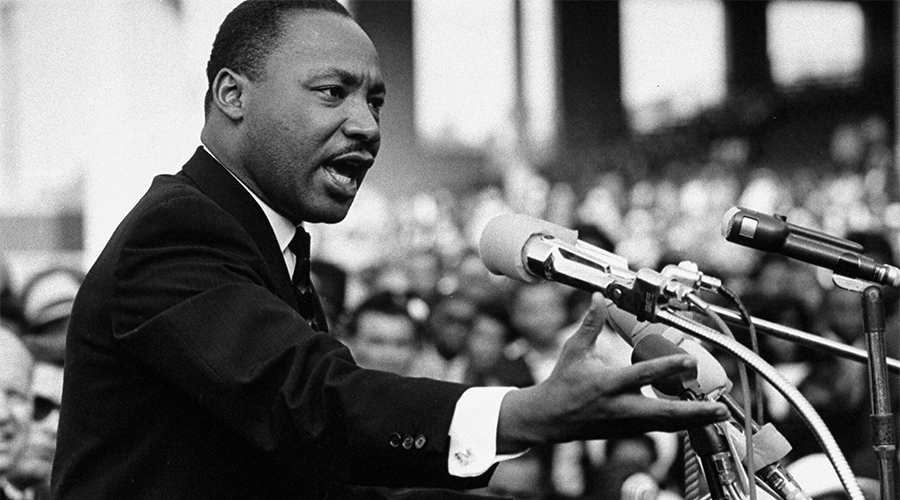
Imagine two trucks, a Chevy and a Ford, driving alongside one another down a highway as they pass a directional sign that says, "Heaven - 100 miles ahead". On the other side of the median, headed in the opposite direction, are two more trucks; also a Chevy and a Ford. Unfortunately, their sign has a different, not-so-heavenly destination. I hope we might find it a bit amusing to watch as the heavenward Chevy driver grimaces towards the Ford driver next to him while waving excitedly in solidarity at his Chevy buddy on the other side of the highway: "Sweet truck man!"
This analogy, one I heard from a Pastor several years ago, helped me understand the absurdity of identifying with particular groups based on superficial reasons. One of the most conspicuous applications I observe every fall is our affinity for others based on college football affiliation. I'd imagine you could find some Auburn or Georgia football fans who find their common allegiance to athletics more valuable than the common bonds of Christianity. What did the Auburn fan say to his fellow deacon at church when he learned he was a UGA fan? "And I thought you were a Christian!"
Although a person's race is not perfectly analogous with car or college football preferences, aligning ourselves with others based on the common variation of pigmentation certainly has a superficial nature to it. I would say that I have more in common with the faithful elderly Christian woman in a Nigerian village than I do with the 40-year-old white man running the local chapter of Proud Boys. Even if that man graduated from Georgia Tech, drives a Toyota Sienna, and enjoys playing cornhole. Probably not commonalities I share with the Nigerian woman.
As parents and teachers, let us remember the eloquent and persuasive challenge from Martin Luther King Jr. Born in January of 1929, King understood the evil and destruction to our souls that results when we align with other groups based on superficial attributes. He said, "Our loyalties must transcend our race, our tribe, our class, and our nation; and this means we must develop a world perspective." Or as the apostle Paul says, "There is neither Jew nor Greek, there is neither slave nor free, there is no male and female, for you are all one in Christ Jesus" (Galatians 3:28).
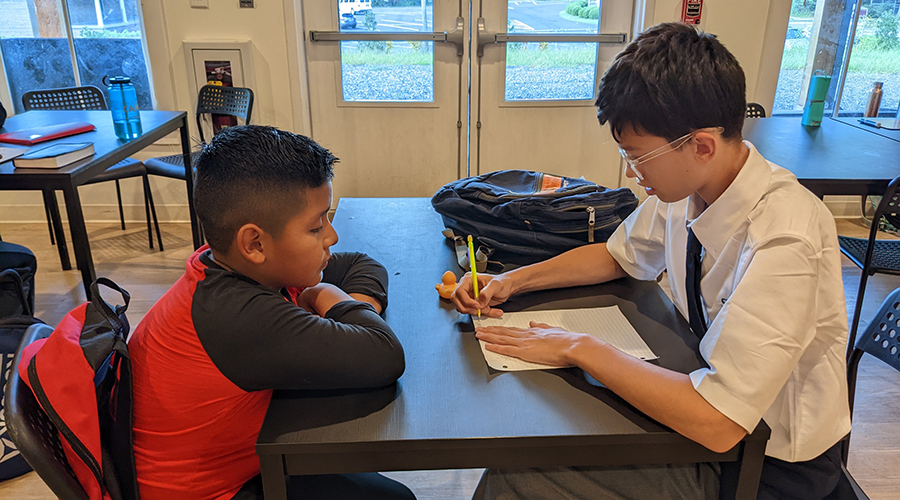
In G.K. Beale's book, Redemptive Reversals , he explores the ironic patterns depicted in Scripture. Ironically, God is the originator of irony! According to Beale, dramatic irony is when "narrated events are turned to the opposite of the way that they appeared to be heading." We see this pattern throughout Scripture but in no more straightforward way than in the path to salvation. For example, Jesus came not to be served but to serve, and the path to eternal life is through death. Scripture also teaches that the one who exalts himself shall be humbled and the one who humbles himself shall be exalted.
How are we teaching this principle to our children? In other words, how are we fostering an attitude of servitude and sacrifice in our school community? One way we are doing this at the Upper School is with our tutoring program. Stonehaven students stay after school each week to tutor elementary students from our local community. As I've watched our students slowly build relationships with these younger students, I've seen a beautiful irony emerge. Our students originally volunteered with the hopes of serving and blessing others. But our students are experiencing the ironic story of being blessed in return. They are learning that the way to ultimate satisfaction and happiness is to pour oneself out for others. This is dramatic irony! And this is the way of Jesus.
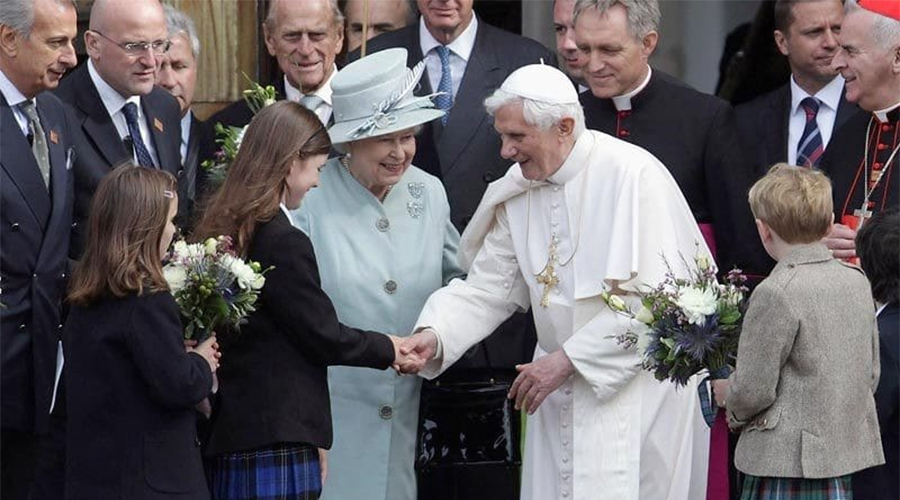
In the final months of 2022, we witnessed the passing of two Christian giants whose lives and legacies will surely be remembered by future generations of classical Christian students studying their history timelines or reviewing for church history tests. On Sept. 8, Queen Elizabeth II died at age 96, a well-loved symbol of strength and stability to millions around the world. Her funeral, which was one of the most-watched televised events in history, was a reminder of her devout faith in Jesus Christ and a powerful witness to a global audience. Then, on Dec. 31, Joseph Ratzinger, who as Benedict XVI shocked the world by abdicating the papacy in 2013, passed away at age 95. Inspiring many Protestants as well as Catholics, Ratzinger's writings boldly diagnosed the cultural maladies of our post-Christian age and called us to strength and courage for the days ahead.
Regardless of whatever theological differences or even personal failings we might find with either of these figures, their examples of enduring faithfulness can remind us as a classical Christian school community to begin with the end in mind. More than any college acceptance or scholastic achievement, we desire to train up children who will, in Eugene Peterson's turn of phrase, live out "a long obedience in the same direction." I don't expect any of our students will go on to be queen or pope, but we can pray that they too–in whatever places God leads them–will live out their faith with courage and devotion all the way to their final breath. May we go about our parenting and teaching this year with that end in mind!
